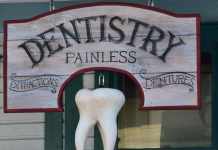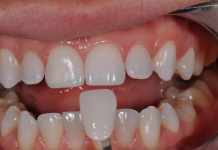You can find that the teeth in your mouth can shift, and there are many reasons why this may happen. If you have a gap in your gums, this can be a significant cause of this from happening, and it is something that you will want to speak to your dentist about to resolve. Below are some of the most common reasons people experience their teeth can start shifting to help set your mind at ease as to why it may be happening to you.
Table of Contents
Missing Teeth
The most common reason why people experience their teeth shifting is they have missing teeth. As the remaining teeth are no longer under the same pressure they once were, they spread out and start to close the gap where you have a space in your gums. If you have a missing tooth or teeth, you will want to visit the best dentist Crows Nest offers and have them go through the options you have available to prevent this. If you happen to not live near Crows Nest, you can always ask for recommendations from friends or family on dentists in your local area.
Your Jawbone Has Grown
Another reason as to why your teeth may be shifting is due to age and your jawbone growing. As we get older, the jawbone grows and becomes narrower, which can affect the teeth in your lower jaw, making it crowded. As time goes on, it can also affect the upper jaw by affecting your bite, causing the upper jaw teeth to shift. There is only a slight difference for some people, but it is more profound for others and can sometimes require tooth extraction to rectify the problem.
Gum Disease (Periodontitis)
Gum disease, which is also known as periodontitis, can be another cause for your teeth to shift in your mouth. Gum disease weakens the gums and makes them recede, leaving more of the teeth exposed and less pressure to keep them in place. The teeth can become loose or shift, and it is a severe complication for people suffering from gum disease.
Grinding Your Teeth
Something else which can also cause your teeth to shift is when you grind them, which many people do when they are sleeping, so they are not even aware they do it. It is a common condition known as bruxism, and there are estimates that around 9% of people suffer from this. There are several ways to treat bruxism, and it is worth speaking to your dentist about this to see what they recommend for you.
Continuous Positive Airway Pressure (CPAP)
Many people use a CPAP machine when they sleep to try and combat sleep apnoea, and this condition is where you stop and start breathing while sleeping. The pressure from the CPAP machine helps to combat this, but studies have also shown that it can cause some people to suffer from their teeth shifting.
Prescribed Orthodontic Treatment

You will also find that if you have undergone orthodontic treatment, this will cause your teeth to shift, although it is in a controlled manner. You can sometimes find that your teeth still shift as they settle down after you have stopped using the orthodontic device prescribed to you. If there is any discomfort of noticeable shifting from your orthodontic treatment, speak to your orthodontist straight away and see what they recommend.



















